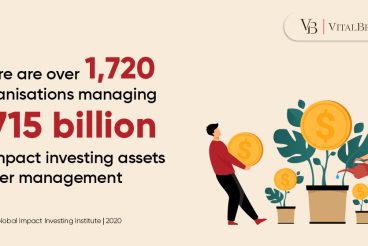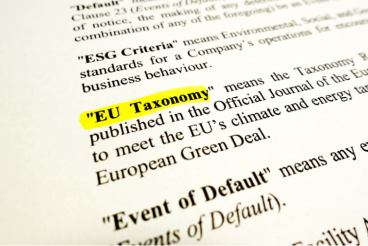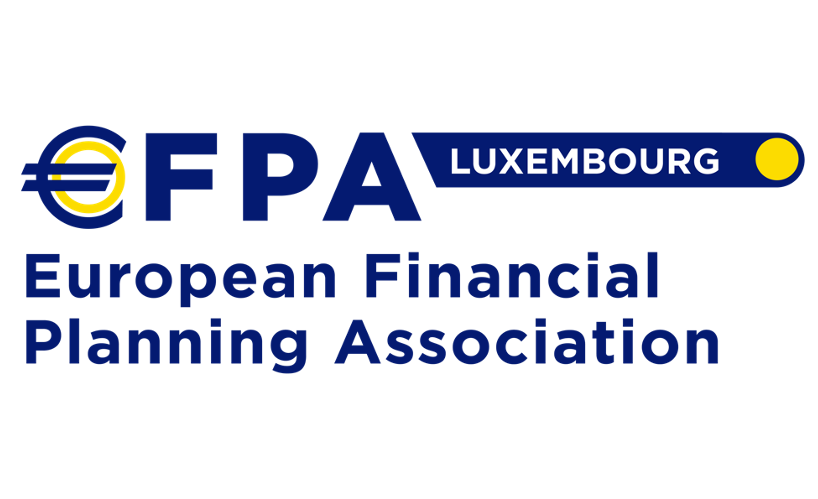
This article on CSR & ESG strategy is from the European Financial Planning Association‘s ESG Handbook 2022, which showcases insights and viewpoints from more than 40 corporates. Bringing together invaluable information and thought leadership from a wide selection of financial market players, the handbook covers a 360° overview of everything you need to know about the Green Finance landscape.
As media partners to EFPA, VitalBriefing has been given special permission to publish articles and essays from the handbook. If you’re interested in the full, in-depth publication, click here. This article was co-written by Irina Stoliarova, Senior Associate, GSK Stockmann, and Dr. Marcus Peter, LL.M., Partner, GSK Luxembourg.
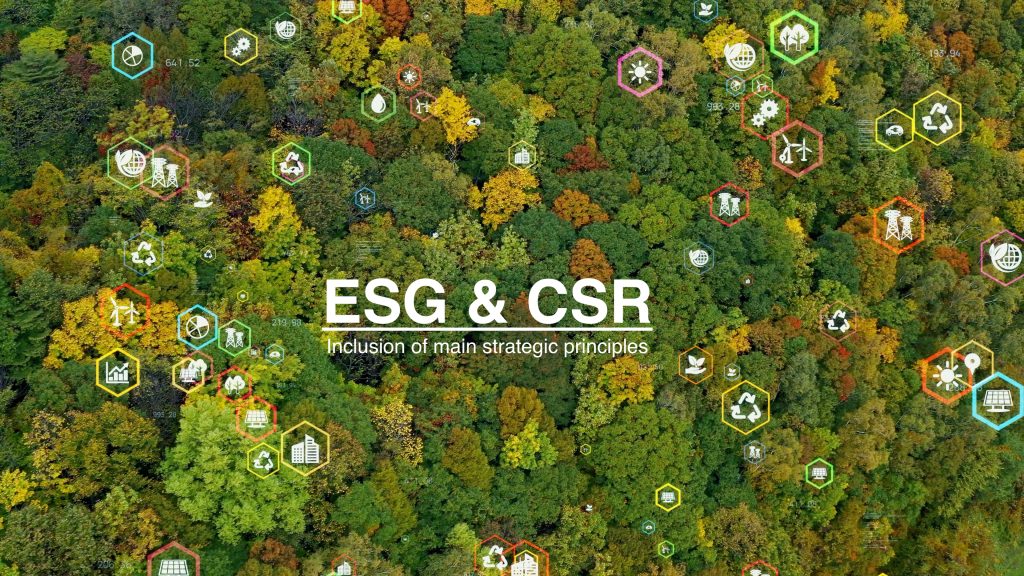
CSR: how was it born?
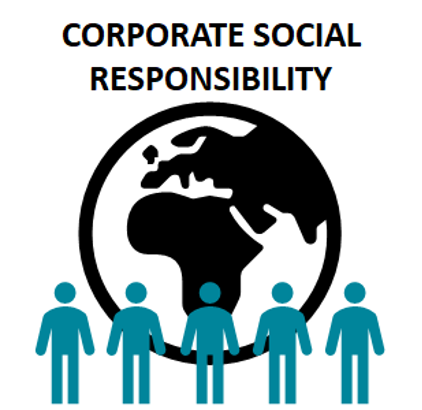
The notion of Corporate Social Responsibility (CSR) is largely known in the modern world, however not everyone knows that the term has already a history of several centuries The notion of CSR is as old as the history of the business itself, even though the concept and definition have only been re-fined and more clearly determined recently.
For decades, companies have been using the notion of CSR to give back to society while strengthening its brand reputation. This management concept is mainly a product of the twentieth century, taking shape in the early 1950s.
The origins of more and more recognised CSR date back to the mid-to-late 1800 as an effect of the Industrial Revolution. In that period, for the first time the matter of companies’ social impact gained the attention of public opinion, in particular with respect to the issues of bad working conditions and the exploitation of women and children employment. First evidence of the debate on CSR can be found in the United States and in the United Kingdom, countries where the industrial model was most developed. At its early stages, CSR initiatives were limited to spontaneous actions by great industrialists and philanthropists who used to make donations for social and educational causes or invest on research.
In the next decades CSR continued to evolve as more organizations began incorporating social interests into their business practices while becoming more responsible also to their stakeholders.
At the beginning of the twenty first century, CSR became an essential strategy for many organizations, however rather huge corporations that deemed incorporation of CSR practises and policies is way to show transparency as to the public, consumers as well as to its shareholders and its employees. They also hoped to attract a more qualified and stable workforce. The smaller companies showed also their willingness to implement a CSR process, but with much less marketing efforts.
Even if CSR models were already adopted by responsible companies, only in the 1950s it became a matter of a rather established practice. This was due to the study made by the American economist Howard Bowen “Social Responsibility of the Businessman” (1953), which is commonly considered as the milestone of CSR. Bowen’s theory moved from the assumption that most of the biggest businesses were relevant centres of power whose actions had a fundamental impact on the lives of citizens. As such, Bowen is often referred to as the father of modern CSR.
Understanding CSR is becoming an important strategy of doing business given that corporate social responsibility is a broad concept that can take many forms depending on the company and industry. Through CSR programs, philanthropy, and volunteer efforts, businesses can benefit society while in the same time boosting their brands. Therefore, finally, we have a “win – win” strategy.
As important as CSR is for the community, it is equally valuable for a company. CSR activities can help forge a stronger bond between employees and corporations, boost morale and help both employees and employers to feel more connected with the world around them.
As reported by the Organisation for Economic Co-operation and Development (“OECD”) CSR gained a central role in the European community in the last decades, also because of the increase in the level of commitment by stakeholders and the support given by public institutions, CSR organisations and the CSR consultancy industry. All these factors have been essential to create public consensus on CSR matters and raise the interest of the investment community. As a matter of fact, CSR performance of large corporations became an important factor for potential investors deeply influencing the policy undertaken by market participants in this regard.

CSR and ESG sustainability strategy
It is important to understand what Corporate Social Responsibility (CSR) really is? What do corporations need to do to achieve their objective?
CSR is a business strategy and management concept pursuant to which companies integrate social, environmental and economic concerns into their decision-making processes and values. It includes the use of various actions that go further the baseline of required laws and regulations to actively improve local and global community’s well-being. CSR is a business model that helps companies to be more socially accountable—to themselves first, their stakeholders and to the public. Companies that integrate CSR into their decision-making process and values are more conscious of the kind of impact they have on different aspects of society.
CSR strategy implies that a company in conducting its ordinary business activities, also impacts and contributes to the society and the environment in a positive way. CSR allows businesses to be part of the positive change, to choose to do what is right not only for its own benefit but also building trust with its clients while doing something good. Investors and clients of those companies feel that they are also doing good things, even though it is rather indirectly when they use a product or service of a socially responsible company or invest into such company. Those companies have a greater chance to increase their revenues, attract new investors and clients just by showing that they favouring and employing a CSR business model – “doing good for society”. The more socially responsible the company is, the more supportive community, investors and its clients become.
Finally, what is the difference between CSR and an Environmental, Social, and Governance (ESG) sustainability strategy?
CSR aims to making business responsible, while ESG criteria make such business’ efforts measurable because ESG provides quantifiable indicators to measure accountability.
Corporate sustainability and responsibility create value for business, society and environment while ESG stands for Environmental, Social, and Governance and hence has a much broader perspective.
CSR involves a broad range of activities. Companies can implement this management concept into their ongoing operations in different manners. The most common examples of CSR include: (i) implementing policies that benefit the environment, (ii) making socially and environmentally conscious investments, (iii) improving labour policies and embracing fair trade, (iv) participating in charitable endeavours, (v) getting involved in volunteer work etc.
The Pyramid of Corporate Social Responsibility
Generally, it is considered that there are four areas that are believed as to being essential in a company’s corporate social responsibility. These elements were organised in order of importance and presented visually in what is now known as the Pyramid of CSR.
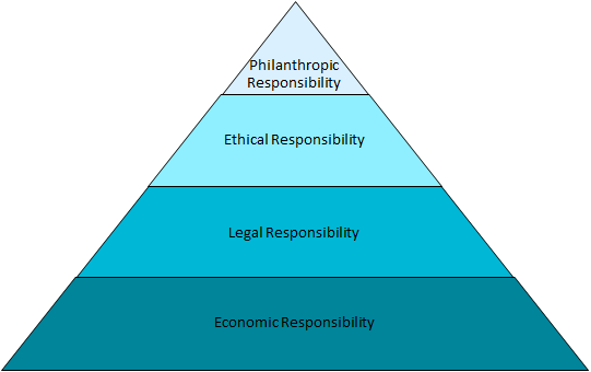
Implication on corporate sustainability risk
What sustainability risk means in practice? Can we define sustainability risk? Pursuant to the EU Sustainable Finance Disclosure Regulation, 2019/2088 (the SFDR), that was adopted as of end of 2019, entered into force as of 10 March 2021 and amended by the EU Taxonomy Regulation, 2020/852 (the Taxonomy Regulation), “sustainability risk” means an environmental, social, governance event or condition that, if it occurs, could cause an actual or potential material impact on the value of investment.
Finally, now we have a definition of sustainable risk to which companies can referrer to in accessing their sustainability risks and their actual or potential impact. However, one should bear in mind that each company has its own risks depending on area, strategy and geographical location of assets. Therefore, its important to put in place a dedicated sustainability risk process, monitor different risks depending on a specific situation and try to mitigate those risks, to the extent feasible. It is also important hire stuff with expertise in this sector and train it as necessary.
Each financial market participant to which the SFDR applies, should integrate sustainability risks into its investment decision-making processes or investment or insurance advices.
Companies that neglect sustainable risks and factors do that at their own risk that potentially would impact their financial returns in a long-term perspective. The others, however, could look at it as an opportunity e.g. companies having poor labour practices and talent management, can potentially be confronted with a loss of business opportunities, penalties and higher workforce volatility. The good management can invest in talents and supply chain performance, which in turn, will result in productivity, lower cost and greater ability to attract talents. All this implies, however, a certain level of competences and knowledge at the management of various corporations.
Sustainability competences at board level
Regardless of the type of the company, it is getting more and more important for the management to be aware of the recent developments in the area of ESG and sustainable finance or engage knowledgeable and experienced team to cope with those matters.
However, when the topic concerns regulated vehicles, such as investment funds, fund managers, insurance companies or credit institutions, the management of those entities must be aware and should be ready to comply with the regulatory requirements that are applicable to those entities, in addition to any other procedures that one may want to implement on a voluntary basis. It is clear, that sustainable finance is a long-term journey with significant opportunities for the fund industry and for the ones who are able to seize the opportunity. Therefore, mitigating various challenges should be the strategy, by getting familiar with the new rules and taking steps to implement them as far as possible. Those that are able to do so in a cost-efficient manner are likely to be those that can benefit from the opportunities in terms of performance, growth of assets under management and reputation that sustainable finance products can bring.
Since 10 March 2021, the SFDR related disclosures have to be respected and complied with by the financial market participants that are in the scope of the regulation, including but not limited to, investment firms that provide portfolio management, AIFMs, UCITS management companies and investment firms, AIFMs, UCITS management companies providing investment advice. In particular, those entities should:
- (i) integrate sustainability risks into investment decision-making processes or investment or insurance advices and disclose that information on their websites;
- (ii) elect, to the extent possible, either to consider or not the principal adverse impacts of investment decisions or advices on sustainability factors;
- (iii) amend remuneration policies in order to reflect consistency with the integration of sustainability risks and
- (iv) disclose ESG related information about the investment funds themselves in offering documents and prospectuses. Compliance with all of the above-mentioned requirements, demands undoubtedly certain level of competences at the board level of the entities in scope and knowledgeable, qualified team to deal with those matters and assist the management, as appropriate. Needless to say, that SFDR is only one of the ranges of EU sustainable measures introduced recently. Other regulatory novelties should not be forgotten such as Taxonomy Regulation, the related level II measures and the contemplated Corporate Sustainability Reporting Directive (CSRD).
Currently, there is a huge trend with view to ESG matters, from a “nice to have” to a business imperative that potentially can affect long-term success and value creation of companies. Companies become more accountable to shareholders, their clients and shareholders are paying more and more attention on how their money is invested, whether their investment has any positive or negative impact on one of the ESG criteria.
With all the upcoming EU sustainable finance measures, management bodies of the companies, investment funds should more than ever be aware of ESG matters, sustainability risks, factors, strategies, in order to run the business in the most efficient way and ensure smooth flows of liquidity into sustainable products.
About the authors:
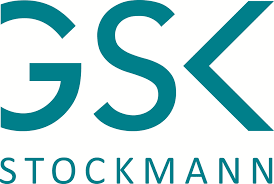
The authors of this article work for GSK Stockmann, an independent European corporate law firm specialising in real estate and financial services, with over 200 employees across its offices in Germany and Luxembourg. GSK also has deep-rooted expertise in other key sectors including funds, capital markets, public, mobility, energy and healthcare.

Irina Stoliarova is a Senior Associate at GSK Stockmann in Luxembourg. She has experience advising national and international clients on all legal and regulatory aspects in the fields of investment funds, private equity, and corporate and M&A matters. Admitted to the Bar in Luxembourg, Irina is a member of the Luxembourg-Russia Business Chamber and of the Association of the Luxembourg Fund Industry (ALFI).

Dr. Marcus Peter heads the funds and private equity practice at GSK Luxembourg. Peter is a lawyer in Germany and Luxembourg, and obtained his LLM and PhD degrees from the European Institute in Saarbruecken, Germany. Marcus has been a partner at GSK Stockmann in Luxembourg since 2016. He is an expert in Luxembourg investment funds and private equity law, M&A, corporate and real estate law. Marcus is a member of the Luxembourg Private Equity Association (LPEA), Chinese-Luxembourgish Chamber of Commerce, DAV Luxembourg, EVER and CBBL (Cross Border Business Lawyers).

